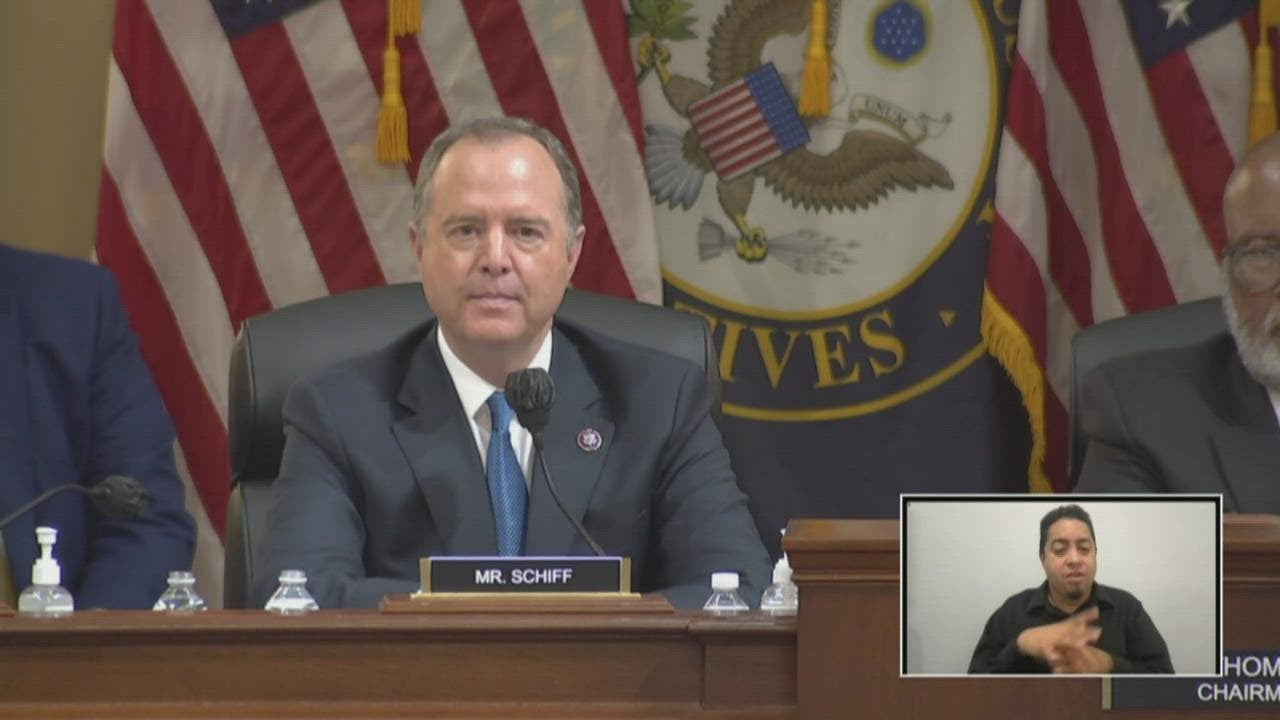The Stop the Steal movement emerged in the aftermath of the 2020 U.S. presidential election, becoming a significant force in American politics. Rooted in false claims of widespread voter fraud, coined “The Big Lie,” this movement galvanized supporters of then-President Donald Trump to threaten people doing their jobs—election officials, Secretaries of State, and poll workers—and to commit acts of violence.
Stop The Steal has had lasting implications on political discourse, election integrity, and public trust in democratic processes. Election officials and citizens doing their civic duty, by counting ballots, had their lives changed forever.
Ruby Freeman and Shaye Moss
Ruby Freeman and her daughter, Shaye Moss, were targeted by Rudy Giuluani when he shared a video of the women counting ballots and accused them of wrongdoing.
The women were doxxed, received death threats by phone and text1, and had people come to Ruby Freeman’s home. A home she had lived in for decades in a community where she was well-known and very loved.
The women testified during the January 6th Committee Hearings where they spoke about the pain and suffering they’d gone through because of a lie—a lie that was propagated by the President of the United States.
”Do you know how it feels to have the President of the United States target you?” Ruby asked.
The mother and daughter ended up suing Rudy Giuliani for defamation and were awarded $148M in court. Giuliani was determined to avoid paying the women and he continued to lie and claim what he said about them was true. When they filed another lawsuit against him for continuing to defame them, he admitted that he had lied. This won’t change the minds of Trump supporters, because the correction would never be shared by Conservative media. A report coming from any source other than their media or Dinald Trump’s mouth is “Fake news.”
Rudy Giuliani had originally stated that the “women were passing around USB ports like they were vials of heroin or cocaine,” when in reality, Ruby was handing her daughter a ginger mint. The racism in his statement is obvious.
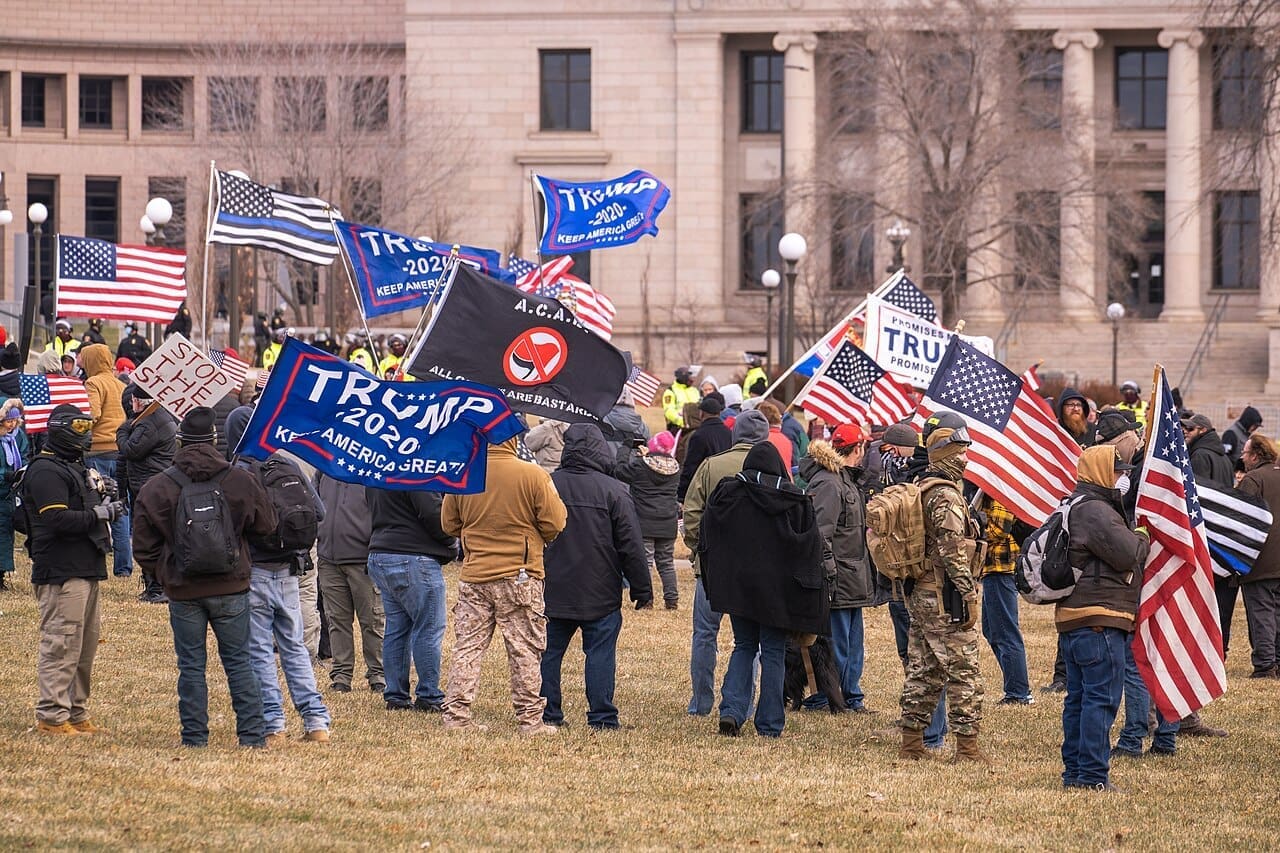
Origins of the Stop The Steal Movement
The Stop the Steal movement began shortly after the 2020 election, which saw Joe Biden defeat Donald Trump. Trump and many of his supporters claimed that the election was “stolen” through systemic voter fraud, despite multiple audits and court rulings finding no evidence to support these claims. The movement gained traction as various social media platforms amplified allegations of irregularities, leading to widespread discontent among Trump’s base.
A personal experience
Early in the movement, right after the 2020 election, friends of mine, who had supported Donald Trump, started sharing videos claiming to show “proof” that the election had been stolen.
I watched a video from TikTok that someone recorded as they walked around a ballot-counting facility. A voiceover was telling the viewer about the “shady activity” taking place in the footage.
The voice talked about how the viewer was witnessing a man changing votes, a woman “looking around to be sure no one is watching” before committing fraud, and other nefarious activities.
I commented on the post challenging everyone to watch it without audio. Because I didn’t believe the lies, I could clearly see the disparity between what I saw and what the narrator was claiming. In reality, the video showed the normal activity of people counting votes in a ballot-counting facility. It was similar to the “suitcases of fraudulent ballots” video.
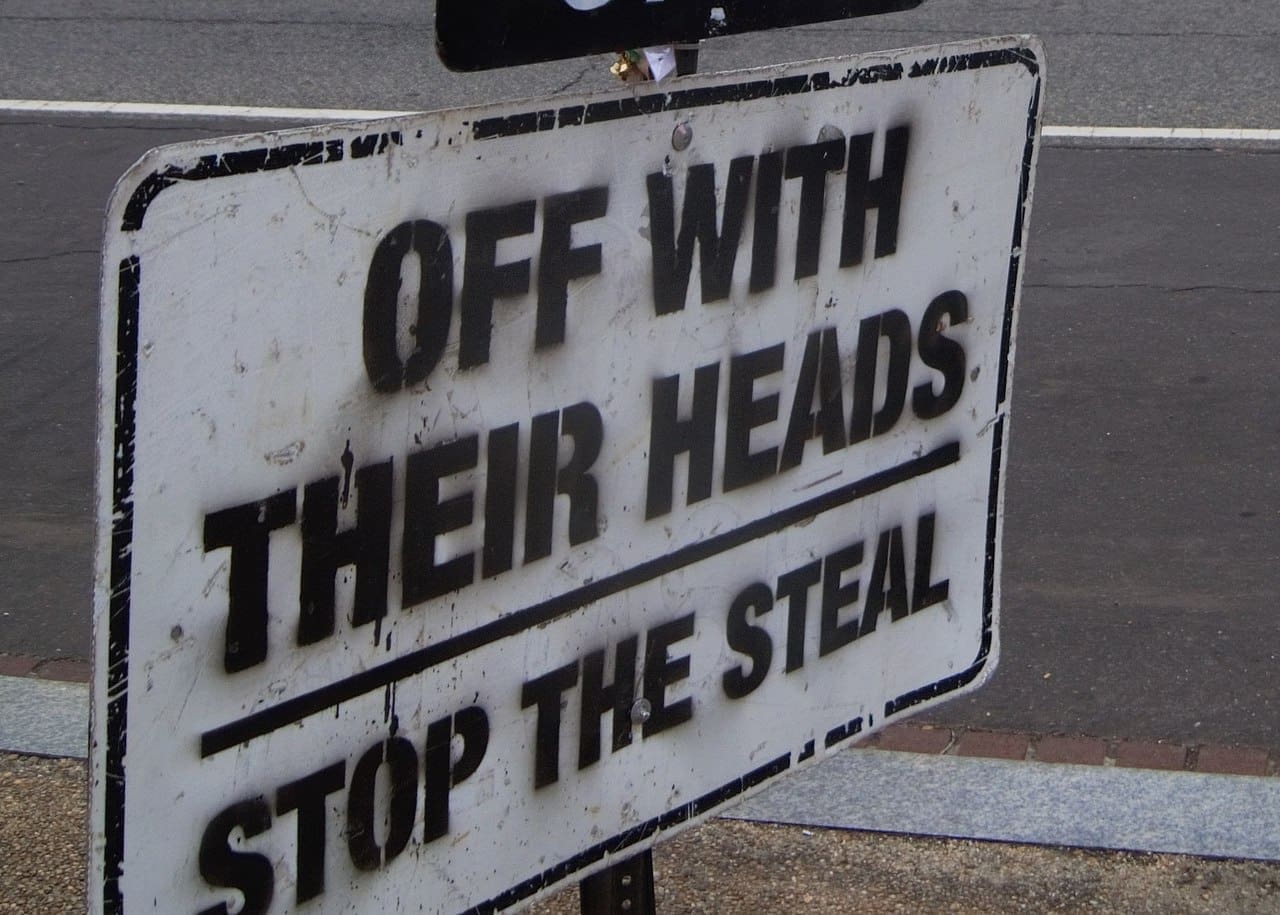
Minimal research and critical thinking debunked the narrator’s claims. The man “changing votes from Trump to Biden” was holding a red pen, which was used to mark ballots that were missing required information for a supervisor to check. Ballots filled out in red ink would be rejected.
The website of any county election office will provide that information. From the FAQ page of my county election office: I filled my ballot out in blue ink. Will it still be valid? As long as the circles are darkened so they can be read by the scanners, you may use blue or black ink. Red ink will not be read by the scanners, so please do not use red ink to fill out your ballot.
The person the narrator accused of “looking around to make sure no one was watching before they committed fraud” was simply looking for a supervisor to approve a signature match. You could see the supervisor speaking to them a minute later in the background of the video.
In that Facebook post comment section I used the example of how a video of a baby’s birthday party could become dark just by adding sinister music and a voiceover describing the evil activities unfolding “before your eyes.”
I wanted to share my experience to show how all of the lies and misinformation on social media were influencing people to believe The Big Lie. A completely innocent video could become nefarious just by adding a voiceover of someone telling you what you are seeing, while eliminating that influence allows your eyes and mind to create your own perception of what you’re seeing.
The phrase “Stop the Steal,” a creation of Roger Stone, was first popularized by a group of Trump supporters, including political operatives and social media influencers, who organized rallies and demonstrations to contest the election results. On November 14, 2020, a significant rally in Washington, D.C., marked one of the movement’s early high-profile events, drawing thousands of attendees.
Key Actions and Events
Following the election, the Stop the Steal movement coordinated numerous rallies across the country, focusing on battleground states like Pennsylvania, Arizona, and Georgia. Activists claimed to have evidence of fraud and rallied support for legislative changes aimed at securing future elections.
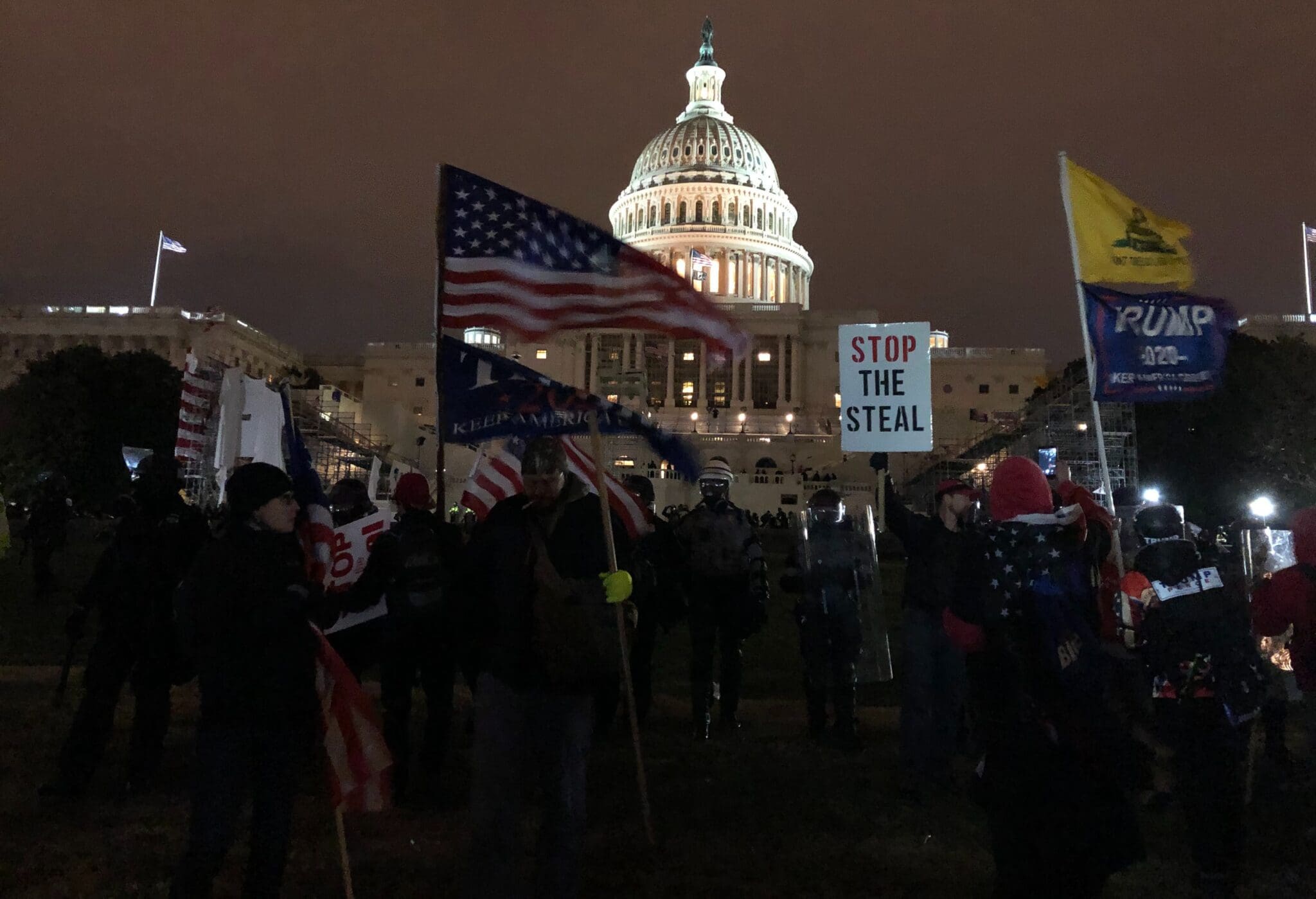
Legal Challenges
The movement also led to a series of legal challenges aimed at overturning the election results. Trump’s legal team filed dozens of lawsuits contesting the election’s integrity, many of which were dismissed for lack of evidence. Despite these setbacks, the rhetoric of a “stolen” election persisted, bolstered by high-profile endorsements from politicians and media figures sympathetic to Trump’s claims.
January 6, 2021, Capitol Riot/Insurrection
The Stop The Steal movement reached a critical peak on January 6, 2021, when a mob stormed the U.S. Capitol in an attempt to disrupt the certification of the electoral college results. This unprecedented attack on the heart of American democracy resulted in multiple deaths, injuries, and extensive property damage. A group chanted, “Hang Mike Pence!” as they walked into the Capitol.
Over 114 police officers were injured and maimed, with one officer losing a finger, another an eye, many suffering from PTSD. The images of that day remind all of us if the wooden gallows erected outside the Capitol. Who was it intended for? It was set up prior to Mike Pence “betraying them,” so was it for members of Congress? We most certainly avoided a scenario that would have been much worse without the actions of the brave police officers who stayed to fight instead of running off to hide.
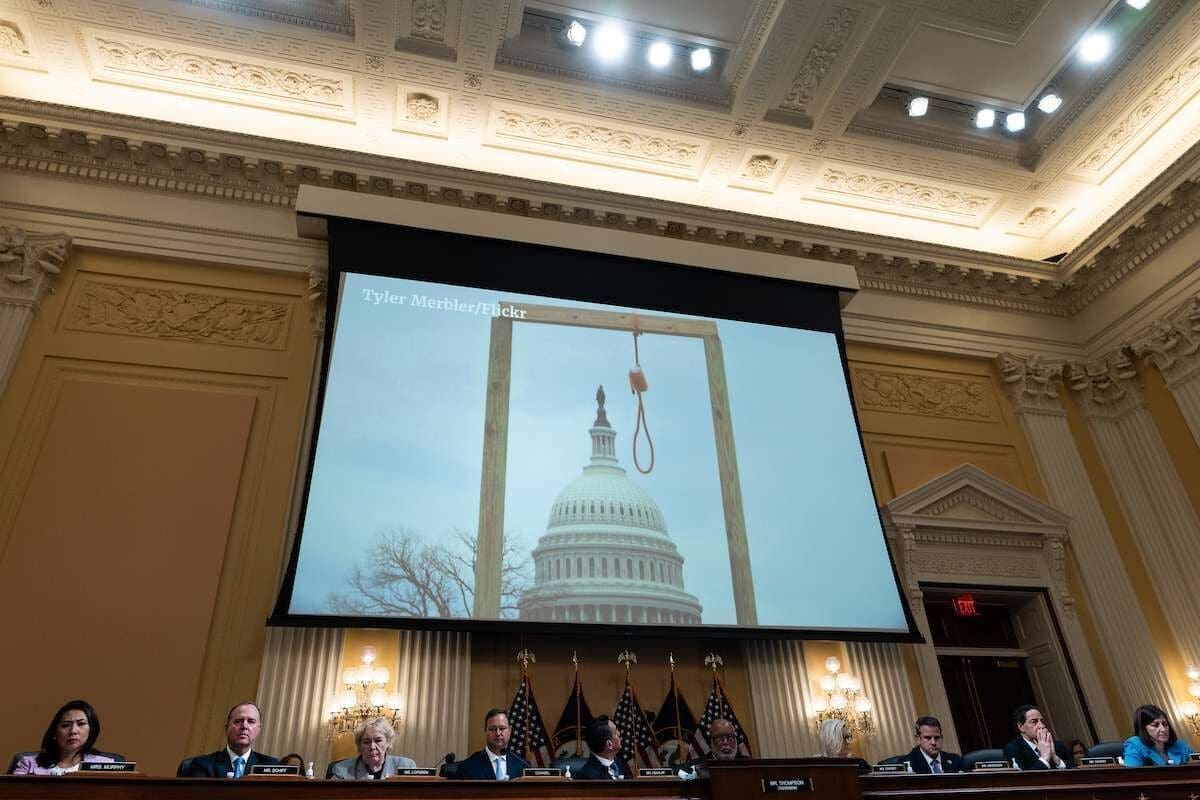
In the aftermath, many Stop the Steal leaders faced legal repercussions, and the event prompted widespread condemnation across the political spectrum.
Evolution and Ongoing Influence
Post-January 6, the Stop the Steal movement has continued to influence American politics. While some key figures were arrested or distanced themselves from the movement, others have continued to advocate for election reforms and further investigations into alleged fraud. The narrative surrounding election integrity has become a cornerstone for many Republican candidates and party platforms.
Grassroots Mobilization
The Stop The Steal movement has also spurred grassroots organizations focused on election audits and changes to voting laws. Some states have enacted laws perceived as restrictive, such as voter ID requirements and limits on mail-in voting, driven by claims of fraud despite studies showing no significant evidence, was used to warrant such changes.
Current Developments
As of 2024, the Stop the Steal movement remains a potent force within certain segments of the Republican Party. The rhetoric around election integrity continues to evolve, with some leaders framing it as a fundamental issue of voter rights and national security. Ongoing discussions about the legitimacy of the electoral process, along with various high-profile court cases and legislative initiatives, indicate that the movement’s influence will likely persist.
Stop The Steal 2.0 is gearing up for the election in November. This time they are more organized, and as described by Slate, “scarily sophisticated.”
The Stop the Steal movement has reshaped the political landscape in the United States, highlighting deep divisions regarding trust in elections and democratic institutions. Its origins in the disputed 2020 election have led to a series of significant events that continue to resonate today, with implications for future elections and the broader political discourse. As debates over election integrity remain at the forefront, the legacy of Stop the Steal will undoubtedly continue to impact American politics for years to come.
- Trump supporters hate when its insinuated that they are in a cult, but anyone or anything that Trump doesn’t like becomes the target of their death threats, bomb threats, violent attacks, mass shootings, and attempted murder (Paul Pelosi). Is that how respectable Americans act when their candidate for President complains about someone? This doesn’t happen on the Left and we need to stop normalizing the behavior. ↩︎

